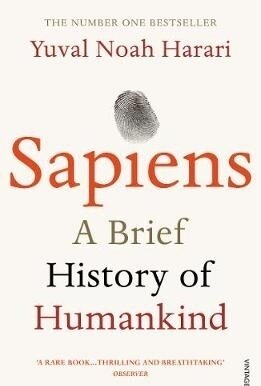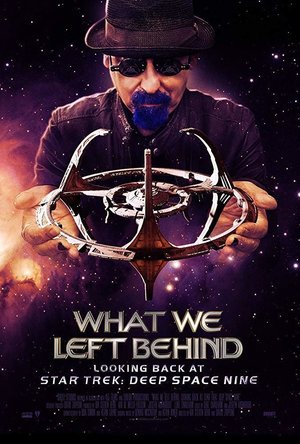Search
BookblogbyCari (345 KP) rated Sapiens: A Brief History of Humankind in Books
Aug 5, 2018
This book was chosen to be the first book read and discussed in an online non-fiction book club I recently joined – and I’m glad we did choose this one!
The book is an overview of homo-sapiens as a species, and how we have changed over the ages, and what we have done, before finally touching on where we are going. As such the book is a cross-pollination of history, sociology, and economics.
As you may expect from a book with such a broad scope, there are some sweeping statements, and rather than being a neutral dispassionate account, Harari makes his opinions very evident. However rather than being irritating, I feel this makes for a more entertaining read.
The book begins by introducing the theme of homo-sapiens in the context of the presence of the other human species that used to exist. He then goes on to describe the cognitive and agricultural revolutions. Then it’s the establishment of patriarchal social hierarchies across the world, largely based on historical conventions. Next Harari states that the purpose of religion is to unify fragile societies with superhuman legitimacy.
Harari then moves on to the scientific revolution, describing how an admission of ignorance by Europeans, along with a desire to discover and conquer new lands was key to the movement.
The conversation moves swiftly then to economics, using the fact that a bank can loan £10 for every £1 it has, to argue that our economics is based on trust in the future. Harari states that a country’s credit rating is more important than its actual resources. Harari describes capitalism and consumerism as being 2 sides of the same coin with two commandments: rich must invest, rest of us must buy. Consumerism, he says, aims to convince people that indulgence is good and frugality is self-oppression.
Harari also argues that, now, instead of relying on local communities the individual relies on the market or the state. Parental authority no longer sacred, he says, and state intervenes. And so when Harari asks if we are any happier now than when we were hunter-gatherers, he argues that our rise of wealth is offset by the disintegration of community life.
Harari also speaks of ecological degradation and our tendency to treat other species as a means to an end, for example, the farming of cow's and chickens has cut years off the lives of both, since they are killed as soon as they reach their maximum weight.
In the final chapter, Harari speculates on the future of mankind. With improvements in medical knowledge comes new ethical conundrums, he says. How will we handle the options of genetic engineering? What will the advent of artificial intelligence mean for humanity?
In my book club, we found that the book generated a lot of talking points. What would the world be like now, had the other species of humans survived? Why have so many cultures across history and the world had patriarchal hierarchies? Can societies improve over time, or is one style better than another? Can communism be considered a religion? Are human rights really just a figment of our collective imagination?
Whilst not everyone in my book club enjoyed the book equally, I would say that it’s as enlightening as it is thought provoking. By the end, it was hard to argue with the author's conclusion that homo-sapiens are like dissatisfied and irresponsible gods.
The book is an overview of homo-sapiens as a species, and how we have changed over the ages, and what we have done, before finally touching on where we are going. As such the book is a cross-pollination of history, sociology, and economics.
As you may expect from a book with such a broad scope, there are some sweeping statements, and rather than being a neutral dispassionate account, Harari makes his opinions very evident. However rather than being irritating, I feel this makes for a more entertaining read.
The book begins by introducing the theme of homo-sapiens in the context of the presence of the other human species that used to exist. He then goes on to describe the cognitive and agricultural revolutions. Then it’s the establishment of patriarchal social hierarchies across the world, largely based on historical conventions. Next Harari states that the purpose of religion is to unify fragile societies with superhuman legitimacy.
Harari then moves on to the scientific revolution, describing how an admission of ignorance by Europeans, along with a desire to discover and conquer new lands was key to the movement.
The conversation moves swiftly then to economics, using the fact that a bank can loan £10 for every £1 it has, to argue that our economics is based on trust in the future. Harari states that a country’s credit rating is more important than its actual resources. Harari describes capitalism and consumerism as being 2 sides of the same coin with two commandments: rich must invest, rest of us must buy. Consumerism, he says, aims to convince people that indulgence is good and frugality is self-oppression.
Harari also argues that, now, instead of relying on local communities the individual relies on the market or the state. Parental authority no longer sacred, he says, and state intervenes. And so when Harari asks if we are any happier now than when we were hunter-gatherers, he argues that our rise of wealth is offset by the disintegration of community life.
Harari also speaks of ecological degradation and our tendency to treat other species as a means to an end, for example, the farming of cow's and chickens has cut years off the lives of both, since they are killed as soon as they reach their maximum weight.
In the final chapter, Harari speculates on the future of mankind. With improvements in medical knowledge comes new ethical conundrums, he says. How will we handle the options of genetic engineering? What will the advent of artificial intelligence mean for humanity?
In my book club, we found that the book generated a lot of talking points. What would the world be like now, had the other species of humans survived? Why have so many cultures across history and the world had patriarchal hierarchies? Can societies improve over time, or is one style better than another? Can communism be considered a religion? Are human rights really just a figment of our collective imagination?
Whilst not everyone in my book club enjoyed the book equally, I would say that it’s as enlightening as it is thought provoking. By the end, it was hard to argue with the author's conclusion that homo-sapiens are like dissatisfied and irresponsible gods.
Andy K (10823 KP) rated What We Left Behind: Looking Back at Deep Space Nine (2018) in Movies
Jul 23, 2019
Where would we be without DS9?
Maybe the best Trek of all time?
Sisko, Odo, Kira, O'Brien, Dax, Quark, Bashir and the rest of the massive cast brought Star Trek to life as never before in this vastly different "station"ary style of Trek.
At the time, syndication was where it was at for reruns and additional revenue for a TV program. DS9 bucked the trend of wrapping up everything within one episode and began a TV serial which pretty much ran almost the entire run, much to the dismay of studio executives. Nowadays, shows like The Walking Dead, Lost, or Game of Thrones do this every week, but in the mid 90s this was not common.
Sandwiched in between The Next Generation and Voyager, DS9 did not get a lot of respect during its initial run at all. Also at that time, Trek TNG movies were in full swing so the show had to compete with that as well. Television stations would often preempt the show, skip a week or run the show in the early morning hours which made it even harder for its audience to keep track of the action.
DS9 certainly got a 2nd life with the current popularity of "binge watching" on your favorite streaming service. Having the ability to watch multi-part episodes or entire seasons within a few weeks brought back to life the en genius writing, acting and production quality of the series.
For this documentary, former showrunner Ira Steven Behr took several years worth of cast, crew and fan interviews, clips, behind the scenes footage and compiled a wonderful interesting film for any Trek fan. Many cast members major and minor as well as producers, writers and tech workers told tales of working on the show and how they very much enjoyed their time.
Throughout the many iterations of Trek, original creator Gene Roddenberry felt the show should entertain as well as provide social commentary on the issues of the time and DS9 was no exception. Throughout the show's 7 year run they dealt with issues such as racism, homelessness, same sex relationships and even genetic engineering.
One of the most fun subplots of the film was gathering the show's original writers in a room to formulate the first episode for the fictitious "Season 8" which will never actually happen (although I wish it would). The ideas, plot points and arcs they went through and came up with were extremely interesting, keep with the high level of writing the show originally produced, but also through us a few curveballs with some fun surprises.
Through the cast interviews we got to hear how the crew got along, some of their favorite and least favorite episodes and even the friendships they have maintained with one another.
The DVD set I received also had included a vast assortment of additional footage featuring even more nuggets and stories of what made the show great.
Overall, this film was one of the best documentaries I have ever seen about one of my favorite television programs in my lifetime. I might have to start binge watching the show again very soon.
Did I mention my name appears in the end credits?!? 😊
Sisko, Odo, Kira, O'Brien, Dax, Quark, Bashir and the rest of the massive cast brought Star Trek to life as never before in this vastly different "station"ary style of Trek.
At the time, syndication was where it was at for reruns and additional revenue for a TV program. DS9 bucked the trend of wrapping up everything within one episode and began a TV serial which pretty much ran almost the entire run, much to the dismay of studio executives. Nowadays, shows like The Walking Dead, Lost, or Game of Thrones do this every week, but in the mid 90s this was not common.
Sandwiched in between The Next Generation and Voyager, DS9 did not get a lot of respect during its initial run at all. Also at that time, Trek TNG movies were in full swing so the show had to compete with that as well. Television stations would often preempt the show, skip a week or run the show in the early morning hours which made it even harder for its audience to keep track of the action.
DS9 certainly got a 2nd life with the current popularity of "binge watching" on your favorite streaming service. Having the ability to watch multi-part episodes or entire seasons within a few weeks brought back to life the en genius writing, acting and production quality of the series.
For this documentary, former showrunner Ira Steven Behr took several years worth of cast, crew and fan interviews, clips, behind the scenes footage and compiled a wonderful interesting film for any Trek fan. Many cast members major and minor as well as producers, writers and tech workers told tales of working on the show and how they very much enjoyed their time.
Throughout the many iterations of Trek, original creator Gene Roddenberry felt the show should entertain as well as provide social commentary on the issues of the time and DS9 was no exception. Throughout the show's 7 year run they dealt with issues such as racism, homelessness, same sex relationships and even genetic engineering.
One of the most fun subplots of the film was gathering the show's original writers in a room to formulate the first episode for the fictitious "Season 8" which will never actually happen (although I wish it would). The ideas, plot points and arcs they went through and came up with were extremely interesting, keep with the high level of writing the show originally produced, but also through us a few curveballs with some fun surprises.
Through the cast interviews we got to hear how the crew got along, some of their favorite and least favorite episodes and even the friendships they have maintained with one another.
The DVD set I received also had included a vast assortment of additional footage featuring even more nuggets and stories of what made the show great.
Overall, this film was one of the best documentaries I have ever seen about one of my favorite television programs in my lifetime. I might have to start binge watching the show again very soon.
Did I mention my name appears in the end credits?!? 😊


